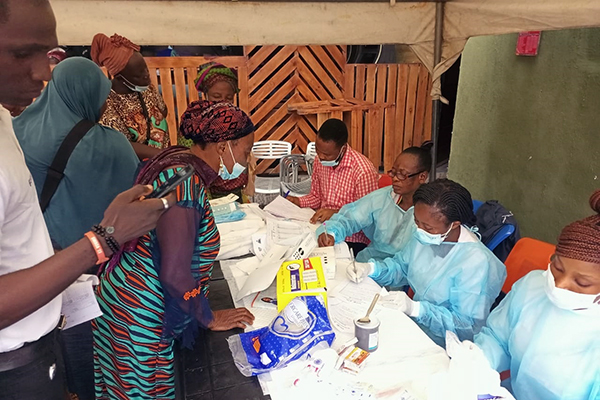Wildfires, heatwaves, droughts, and floods leave many people wondering what they can do to address the environmental challenges facing our world. In Rotary, the Environmental Sustainability Rotary Action Group (ESRAG) has provided a platform for environmentally-minded Rotary and Rotaract members to come together to seek solutions that have a sustainable impact. For Earth Day, 22 April, check out some of the many resources the action group makes available to members to carry out effective environmental actions.
Tag Archives: Rotary Action Groups
Environmental action group deepens interest in Rotary


By Kris Cameron, a member of the Environmental Sustainability Rotary Action Group, and the Rotary Club of Wenatchee Confluence, Washington, USA
About a year before I retired, I began to think about how I might meet new people and find an avenue to continue to serve my community. I had been a public school teacher and union leader for almost three decades and was anxious to start a new chapter.
When I saw a humorous video that a friend of mine who is younger than I had posted on social media about his Rotary club, I was intrigued. I had a positive view of Rotary from growing up with Rotary parks in my community and Rotary Youth Exchange students who attended my high school. My friend agreed to bring me to a meeting as his guest. The warm reception I received and the interesting people I met there were an irresistible draw, and I soon joined the club and began serving in leadership roles.
Continue readingRestoring habitat and helping pollinators in Colorado

By Ashley Kasprzak, past president (2022-23) of the Rotary Club of Longmont Twin Peaks, Colorado, USA
I may have “cause-related” Attention Deficit Disorder. Yes, I made up that phrase, and I am smiling. I would bet there are some others reading this who have a similar disposition. I believe that there are so many ways to improve the world, and I want to do them all. I want to engage with nonprofits that feed the hungry, provide housing for the homeless, educate children from preschool through graduation, bring the arts to more people, and much more.
I fell in love with Rotary because it addresses diverse issues. I currently serve on the Board of Directors for Twin Peaks Rotary Club Longmont. As an organization, Rotary members believe we have a shared responsibility to take action on our world’s most persistent issues. In 2020, Rotary added protecting the environment as one of its areas of focus.
Continue reading“I Found a Purpose in My Pain:” Nigerian Oncologist Changes Lives


The pandemic did not just slow down the delivery of essential health services to vulnerable populations. In many cases, it completely cut it off. On 23-24 June, health days were organized at 60 sites in Nigeria. At two sites at Ikeja, Dr. Omolola Salako, a clinical oncologist, and her team witnessed hundreds of women queueing up to get their cervical cancer screening and tests done. Salako is founder of three organizations – Sebeccly Cancer Care and Support Centre, Oncopadi Technologies and Pearl Oncology Clinic, and has spent over 16 years providing quality care and education to cancer patients in Nigeria. She recently shared her experience with Sneha Saloni, a communications specialist with the Rotary Action Group for Family Health & AIDS prevention.
Continue readingHow I found a sense of belonging in Rotary

By Maricler Botelho, a member of the Rotary Club of Marilia-Pioneiro, and assistant governor of District 4510
When I share my Rotary story, it is one of recognition, support, and acceptance. I believe it also tells the story of Rotary’s commitment to inclusion.
I was born in Tupi Paulista, in the countryside of São Paulo, and grew up in the northern part of the state of Mato Grosso, in the city of Juara. I come from a simple family that set a high value on respecting others. I had to move about 600 miles away from my town to pursue my desire to be a lawyer. I’m the first on my mother’s side of the family to get a college degree. Our socioeconomic status created real limitations, which is why I grew up accepting a feeling that I didn’t really belong. Then I was introduced to Rotary.
Continue reading